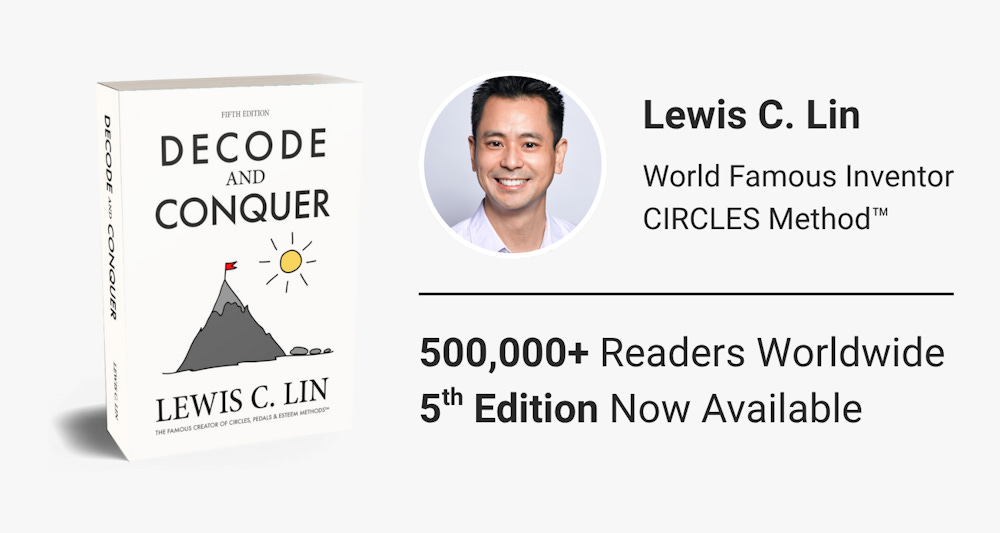Meta PM Interview Questions 2025: How to Answer Binary Tradeoffs with Confidence
Most PM candidates default to “it depends.” Here’s why that fails at companies like Meta, and how the best candidates answer instead.
Hey, Paweł here. This is the free archived edition of The Product Compass Newsletter.
Every week, I share actionable tips, templates, resources, and insights for PMs.
Here’s what you might have recently missed:
AI Agent Architectures: The Ultimate Guide With n8n Examples
Office Hours Recordings (On Thursday: How to Build a RAG Chatbot)
The Ultimate List of 147 Product Manager Interview Questions
Consider subscribing or upgrading your account for the full experience:
Our guest today is Lewis C. Lin, the world's leading authority on PM interviews and the inventor of the CIRCLES Method™. He is also the author of the all-new 5th edition of Decode and Conquer, fully rewritten with 500+ pages of advanced PM interview techniques.
Hey, Lewis here. I'm struck by how dramatically the product management interview landscape has changed. A slower economy has raised the bar for candidates.
ChatGPT has massively expanded the range of interview questions candidates might face. And Meta continues to shape how PM interviews are run across the industry.
While researching the new edition of Decode and Conquer, I became passionate about two evolving question types: hidden signal questions and binary tradeoffs. Today, I want to focus on binary tradeoffs. They reflect a critical shift in how companies, especially Meta, assess product thinking.
In this issue, we cover:
How Binary Tradeoff Questions Have Evolved
Why “It Depends” No Longer Works
What Meta Really Looks for in PM Thinking
The Hidden Cost of PM Indecision
How to Nail Binary Tradeoff Questions (With 3 Examples)
What the New PM Interview Landscape Demands
1. How Binary Tradeoff Questions Have Evolved
Binary tradeoff questions force candidates to choose between two competing options, both with compelling advantages.
Picture this: "You're the Facebook newsfeed PM. Do you put a People You May Know widget or an ad unit in the prominent sidebar spot?"
Both choices have merit, but one has demonstrably stronger fundamentals. What makes these questions particularly powerful is how they reveal a candidate's decision-making framework, ability to prioritize, and product judgment under constraint.
Meta and other tech giants have increasingly leaned into these questions for a surprising reason. They're hunting for candidates who can make clear choices backed by structured thinking. Not those who hedge with endless "it depends" equivocations.
2. Why “It Depends” No Longer Works
For years, I’ve taught candidates that product questions revolve around tradeoffs, where “it depends” forms the foundation of a strong answer. That principle still holds, but it can be dangerously incomplete when applied to binary tradeoff questions.
Through extensive research, I discovered that Meta increasingly expects candidates not only to identify tradeoffs but also to make clear recommendations supported by sound reasoning. What’s more surprising is that Meta values candidates who can spot when the evidence clearly supports one option, even in situations that seem balanced at first glance.
To be clear, not every product decision has a single right answer. Context, user needs, and strategic priorities often drive the outcome. But Meta has learned, sometimes the hard way, that some tradeoffs only appear balanced. When analyzed from first principles, one option often emerges as clearly stronger.
The skill being tested isn’t blind conviction. It’s the ability to judge when a decision truly depends on context versus when there is a fundamentally better choice.
This challenges the standard PM interview advice, which often encourages staying neutral. Meta interviewers are now looking for something more: candidates who can show the courage and clarity to commit when the fundamentals point in a clear direction.
3. What Meta Really Looks for in PM Thinking
Keep reading with a 7-day free trial
Subscribe to The Product Compass to keep reading this post and get 7 days of free access to the full post archives.




